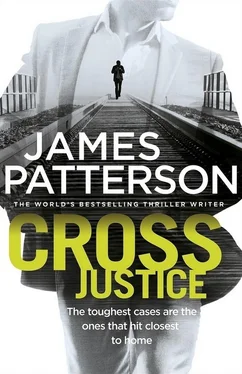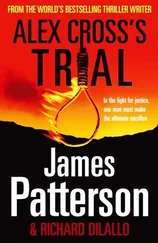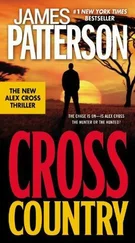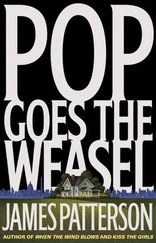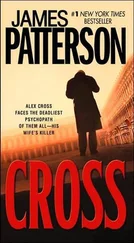Coco thought the artist had rendered Lisa in all her glory, capturing her at the height of her feminine power, elegance, and ripeness. No one could change that. Ever. From this day forth, Lisa would be the woman in the painting, not that lifeless husk upstairs.
He exited through the front doors and stepped out onto a circular driveway. It was late June and insufferably hot inland. But here, so close to the ocean, a breeze blew, making the air quite pleasant.
Coco walked down the drive, past Lisa’s perfectly tended gardens, lush with tropical color and scented with orchids blooming. Wild parrots cackled from their roosts in the palm trees when he pushed a button on the gate and it swung open.
He walked for a block past well-manicured lawns and handsome homes, reveling in the clicking noise the stilettos made on the sidewalk and in the feel of the silk dress swishing against his silk-clad thighs.
A rare old sports car, a dark green Aston Martin DB5 convertible, was parked ahead. The Aston had seen better days and was in need of repair, but Coco still loved the car the way an insecure child will love and worry a favorite blanket until it simply falls apart.
He climbed inside, set the garment bag in the passenger seat, and put the key in the ignition of the roadster. It roared to life. After lowering the convertible top, he put the Aston in gear and pulled out into light evening traffic.
I am beautiful tonight, Coco thought. And it’s a spectacular evening in my paradise, Palm Beach. Romance and opportunity lie just ahead. I can feel them coming to me already .
Like my mother always told me, if a girl has fashion, romance, and a little opportunity in her life, nothing else really matters .
When i saw the road sign that said we were ten miles from Starksville, North Carolina, my breath turned shallow, my heartbeat sped up, and an irrationally dark and oppressive feeling came over me.
My wife, Bree, was sitting in the passenger seat of our Ford Explorer and must have noticed. “You okay, Alex?” she asked.
I tried to shrug the sensations off, said, “A great novelist of North Carolina, Thomas Wolfe, wrote that you can’t go home again. I’m just wondering if it’s true.”
“Why can’t we go home again, Dad?” Ali, my soon-to-be-seven-year-old son, asked from the backseat.
“It’s just an expression,” I said. “If you grow up in a small town and then move away to a big city, things are never the same when you go back. That’s all.”
“Oh,” Ali said, and he returned to the game he was playing on his iPad.
My fifteen-year-old daughter, Jannie, who’d been sullen most of the long drive down from DC, said, “You’ve never been back here, Dad? Not once?”
“Nope,” I replied, glancing in the rearview mirror. “Not in... how long, Nana?”
“Thirty-five years,” said my tiny ninety-something grandmother, Regina Cross. She sat in the backseat between my two kids, straining to look outside. “We’ve kept in touch with the extended family, but things just never worked out to come back down.”
“Until now,” Bree said, and I could feel her gaze on me.
My wife and I are both detectives with the DC Metro Police, and I knew I was being scrutinized by a pro.
Really not wanting to reopen the “discussion” we’d been having the past few days, I said firmly, “The captain ordered us to take time off and get away, and blood is thicker than water.”
“We could have gone to the beach.” Bree sighed. “Jamaica again.”
“I like Jamaica,” Ali said.
“Instead, we’re going to the mountains,” I said.
“How long will we have to be here?” Jannie groaned.
“As long as my cousin’s trial lasts,” I said.
“That could be, like, a month!” she cried. “Probably not,” I said. “But maybe.”
“God, Dad, how am I going to stay in any kind of shape for the fall season?”
My daughter, a gifted track athlete, had become obsessive about her workouts since winning a major race earlier in the summer.
“You’re getting to work out twice a week with an AAU-sanctioned team out of Raleigh,” I said. “They come right to the high school track here to train at altitude. Your coach even said it would be good for you to run at altitude, so please, no more about your training. We’ve got it covered.”
“How much attitude is Starksville?” Ali asked.
“Altitude,” corrected Nana Mama, a former English teacher and high school vice principal. “It means the height of something above the sea.”
“We’ll be at least two thousand feet above sea level,” I said, and then I pointed up the road toward the vague silhouettes of mountains. “Higher up there behind those ridges.”
Jannie stayed quiet several moments, then said, “Is Stefan innocent?”
I thought about the charges. Stefan Tate was a gym teacher accused of torturing and killing a thirteen-year-old boy named Rashawn Turnbull. He was also the son of my late mother’s sister and—
“Dad?” Ali said. “Is he innocent?”
“Scootchie thinks so,” I replied.
“I like Scootchie,” Jannie said.
“I do too,” I replied, glancing at Bree. “So when she calls, I come.”
Naomi “Scootchie” Cross is the daughter of my late brother Aaron. Years ago, when Naomi was in law school at Duke University, she was kidnapped by a murderer and sadist who called himself Casanova. I’d been blessed enough to find and rescue her, and the ordeal forged a bond between us that continues to this day.
We passed a narrow field heavy with corn on our right, and a mature pine plantation on our left.
Deep in my memory, I recognized the place and felt queasy because I knew that at the far end of the cornfield there would be a sign welcoming me back to a town that had torn my heart out, a place I’d spent a lifetime trying to forget.
I remembered the sign that marked the boundary of my troubled childhood as being wooden, faded, and choked by kudzu. But now the sign was embossed metal, fairly new, and free of strangling weeds.
WELCOME TO STARKSVILLE, NC
POPULATION 21,010
Beyond the sign we passed two long-abandoned, brickwalled factories. Windowless and falling into ruin, the crumbling structures were surrounded by chain-link fences with notices of condemnation hanging off them. In the recesses of my brain, I remembered that shoes had once been produced in the first factory, and bedsheets in the other. I knew that because my mother had worked in the sheet mill when I was a little boy, before she succumbed to cigarettes, booze, drugs, and, ultimately, lung cancer.
I glanced in the rearview mirror and saw from my grandmother’s pinched face that she too was being haunted by memories of my mother, her daughter-in-law, and probably also of her son, my late father. We drove by a seedy strip mall that I didn’t remember and then by the shell of a Piggly Wiggly grocery store that I distinctly recalled.
“Whenever my mom gave me a nickel, I’d go in there and buy candy or a Mr. Pibb,” I said, gesturing to the store.
“A nickel?” Ali said. “You could buy candy for a nickel?”
“In my day, it was a penny, young man,” Nana Mama said.
“What’s a Mr. Pibb?” asked Bree, who’d grown up in Chicago.
“A soda,” I said. “I think it’s carbonated prune juice.”
“That’s disgusting,” Jannie said.
“No, it’s actually good,” I said. “Kind of like Dr Pepper. My mom liked it. So did my dad. Remember, Nana?”
“How could I forget?” My grandmother sighed.
Читать дальше
